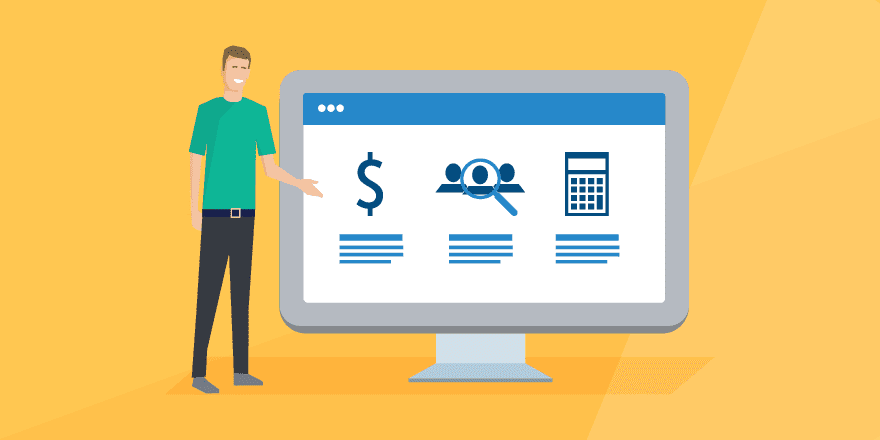It’s the age of technology: ChatGPT, AI, and Machine Learning are slowly becoming the norm, but will they impact even the payroll industry? We are yet to see that. But in 2023, payroll software continues to be an essential tool for businesses of all sizes (be it big, medium, or small), helping them to streamline the payroll process and improve accuracy while ensuring compliance with tax laws and regulations.
And while there’s no denying that with advances in technology, payroll software now offers more features, including mobile accessibility, real-time data tracking, and customizable reporting. Additionally, payroll software now integrates with other systems and software that businesses use, such as human resource management and accounting software. Let’s learn a bit more about this in this article.
What is a Payroll Software? Is it Needed?
To state simply, payroll software is designed to help businesses manage their employee pay and related financial records. It automates processes such as calculating employee salaries, withholding taxes, and creating paychecks or direct deposits.
It is important for a business because it streamlines the payroll process, reduces errors, and saves time and effort. It also ensures compliance with tax laws and regulations, helps businesses keep accurate records, and provides valuable insights into payroll costs and employee compensation. Such integrations can help automate processes and provide a more seamless payroll experience for employees and employers. As a result, businesses that use payroll software can save time and resources while minimizing errors and improving financial record-keeping.
Further, by using payroll software, a business can avoid costly mistakes and penalties. Thereby, improving the overall efficiency and accuracy of its financial operations.
 12 Factors to Consider While Choosing a Payroll Software
12 Factors to Consider While Choosing a Payroll Software
With a wide range of choices available in the market, it can be overwhelming to choose the right payroll software for your business. And it’s important to go beyond the casual as well. One should not just look for reputable providers with a strong track record and positive reviews. There are a few other factors too, that one must consider. These include,
1. Features
The payroll software should have the features that your business requires to manage payroll effectively. Examples of a few general or must-have features include calculating employee pay and tax withholdings, managing benefits and deductions, and generating pay stubs, etc.
2. Ease of Use
In practical terms, a user-friendly payroll software will have an intuitive and straightforward interface, clear navigation, and helpful features that reduce the likelihood of errors. It will also have robust reporting capabilities, enabling you to generate reports quickly and easily, and perform tasks such as tracking employee hours, calculating pay, and generating pay stubs without difficulty.
Therefore, a payroll software should be intuitive and easy to use, allowing your staff to quickly learn and use the software with minimal training. This can help reduce errors and save time in the long run.
For example, Umbrella payroll software is known to be easy to use, helping you save time and resources.
3. System Compatibility
Ensure the payroll software is compatible with your current systems and accounting software. This can help streamline your payroll process and prevent any data integration issues.
Here, one should consider providers who own and develop their own technology. As they have the flexibility to develop their own data integrations as well, giving you the leverage of availing a tailored solution.
4. Data Security
What if your data gets corrupted due to some third-party error? That’s why one must choose payroll software with robust security features to protect sensitive employee data.
You must check the reliability of the vendor to the utmost before placing any purchase order. In this case, look for software that offers features like end-to-end encryption, secured data centers, and offers two-factor authentication, etc.
5. Customer Support
The payroll software should come with comprehensive support, such as a customer service team, account manager, and/or technical support, etc. Before making a purchase, look for companies that offer multiple support channels, including phone, email, live chat, etc. All in all, having a team that is dedicated to your success will help you fully maximize your investment.
Additionally, do make sure that the company’s customer and support service satisfies the required norms and then only sign the project. A better plan here will be to go through online reviews and even have a conversation with the existing clients of the organization.
6. Pricing
Price comparison is important, but the cheapest option isn’t necessarily going to be the most effective. Consider the pricing model of the software, whether it’s subscription-based, per employee, or per pay period. Choose a software that fits within your budget and provides good value for the features and support provided.
7. Scalability
A good rule of thumb is to think about using the payroll solution for a minimum of 4–5 years, and envision what payroll strategy will best cover your business journey during this period and possibly beyond.
So, choosing payroll software that can grow with your business as it expands should be the ideal requirement. You can search for software that can handle additional employee sizingand offer more advanced features as your business grows.
8. System Integration
Choose payroll software that can integrate with other systems and software your business uses, such as time and attendance, or accounting software. This can help streamline the payroll process and reduce the likelihood of errors.
For example, if you need to integrate it with your biometric machine, the task should get completed with ease without taking much time.
9. Reporting
The payroll software should provide robust reporting capabilities, including standard reports and customizable reports that can be tailored to your business needs. This can help businesses gain insights into payroll costs and employee compensation.
10. Compliance
The payroll software should stay up to date with current payroll tax laws and regulations to ensure compliance. One should look for vendors that offer compliance features such as automatic tax rate updates, tax form filing, etc.
11. Mobile Accessibility
The world has gone mobile! That’s why choosing payroll software that can be accessed through mobile devices is a huge advantage. This allows employees and employers to manage payroll from anywhere, anytime. Thereby, contributing towards improving the overall efficiency of the payroll process.
12. Customization
Choosing payroll software that can be customized to fit your business needs will help you make the most out of your investment. This can include creating custom pay types, adding unique deductions, or other features that can help streamline your payroll process.
Conclusion
Choosing the right payroll solution is critical for your business. And as a business owner, you expect payroll to be a seamless part of your business.
While understanding the above-mentioned factors will give you a more comprehensive view of the resources you will need for transitioning to a payroll solution. It is also equally important to understand how a payroll provider lays out its plans. As many providers offer add-on services and integrations for an additional monthly fee to help extend functionalities. One should examine these fees closely as they often can add up quickly.




